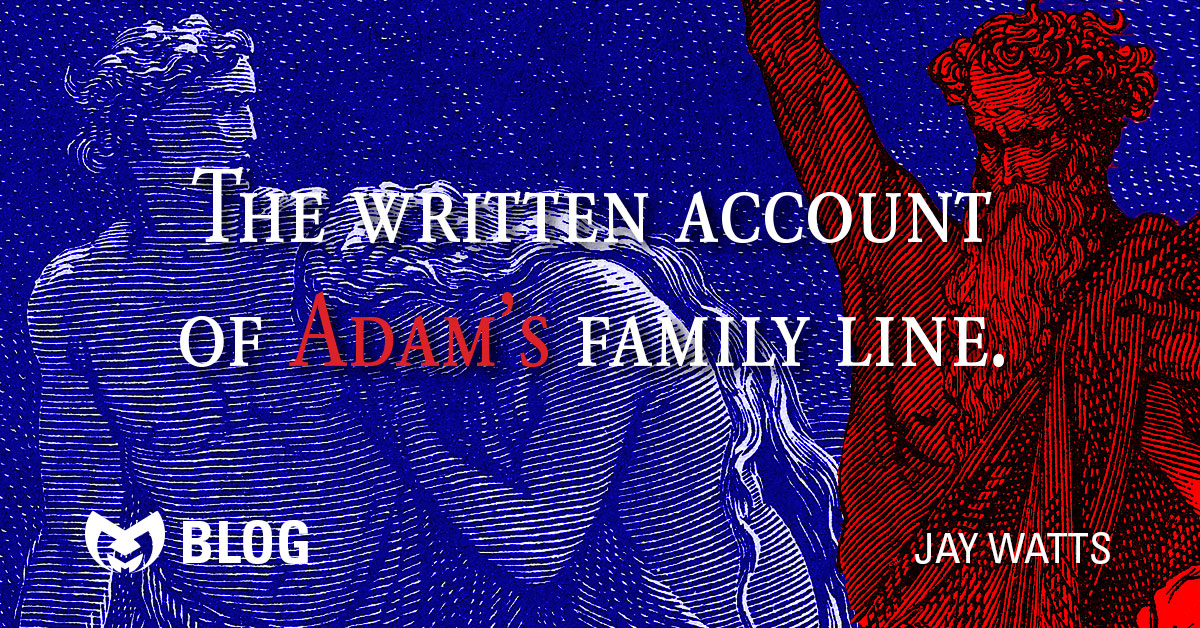Blogging Through the Bible with an Eye Toward Life
The Lineage from Adam to Noah: The Story of Generations
This chapter charts the lineage from Adam to Noah. It is the second lineage of Genesis, the first coming in Chapter 4 with the lineage of Cain to Lamech and his sons. Cain’s lineage created stringed music, domesticated livestock, tools, and cities. Lamech also continued the family tradition of killing his fellow man, an offense magnified given that within this story people live nearly a thousand years.
Chapter 5’s lineage does not contain any great accomplishments, and it may raise questions about what we can discern about life in a chapter that does little more than list men being born and then dying. I see one important point; the Bible continuously places mankind within a greater narrative. It is the story of generations, not a series of unconnected events. All of us are a part of a larger tale that began long ago and still unfolds around us.
Writing and speaking about human dignity across a broad range of issues for the past 15 years of my life has left me convinced that our relationships to the generations which preceded us and the generation to follow are broken. We manage both the death of the preceding generation and beginning of the next terribly. Death is often outsourced to strangers and, in some places, hastened. Birth is prevented through the destruction of our offspring before they are born. Most of these decisions appear driven to preserve our radical sense of autonomy and our right to live glorious lives unencumbered by the adjacent generations and their many demands.
The Bible tells a different story. We are created from relationship, into relationship, and for relationship. I came into existence the son of Jimmy and Mary Charles, the brother of Mary Beth and Leslie, a grandchild, and a nephew. I was all of those irrespective of how any of those people felt about those relationships. A father who does not like his child is still a father. He is just a bad father.
Cain murdered his brother and broke his parents’ heart. His sin and judgement must be understood in the context of his family, something the story clearly does. Cain’s family deals with the fallout of his evil, whether through his violence being carried on by his ancestors or his mother giving birth to Seth as a comfort in her mourning. Each of us is here for a moment. We inherit the world; we don’t create it. We live out our place in the lineage. Our choices may echo through the lives of generations to follow, but only the echo, only the memory will remain and then only in the minds of those most touched by our lives.
Our world aggressively forgets almost everyone who ever lived, our families should not. This lineage begins that oft repeated lesson in the Bible. God didn’t reveal himself to mythical people. He revealed himself to men and women who had families and lived in communities. Every time we begin to believe our lives are about our glory, our accomplishments, about us, we lose our way. The greatest commandment centers on relationship, with God and our neighbor. Our first relationships define us and shape us in a manner none other can.
We are born, we live, we birth the next generation, we prepare them to take our place in this world, and we go home to glory. If we are truly blessed, that is the path we get to walk.


Leave A Comment